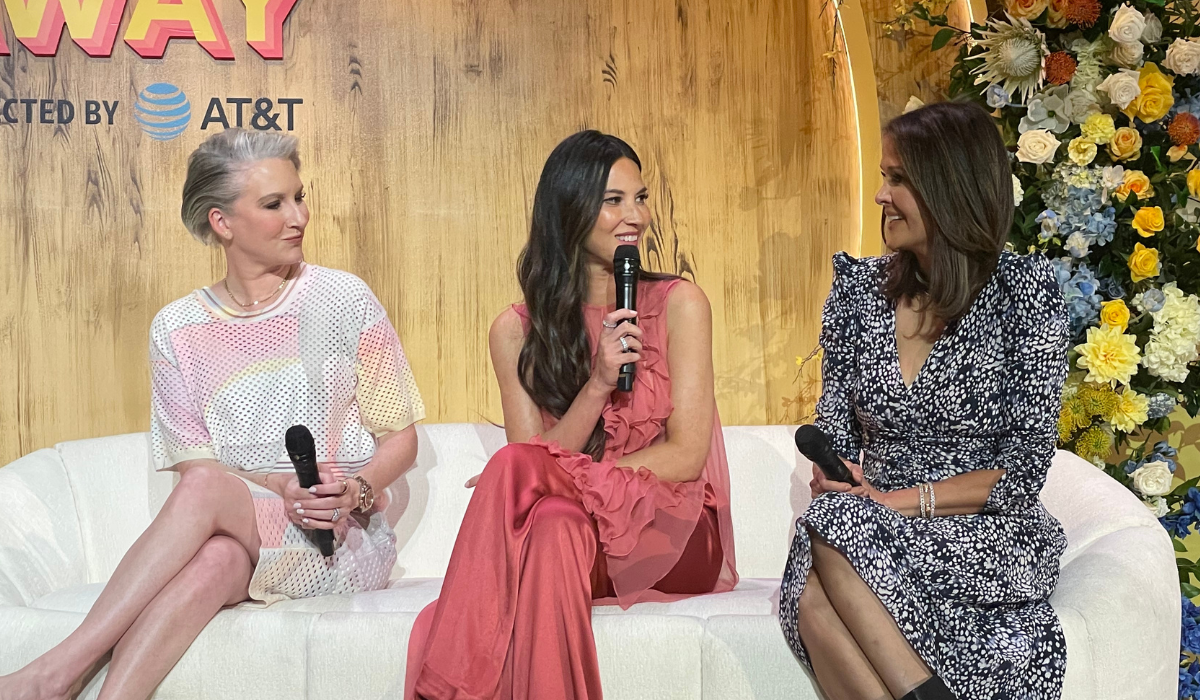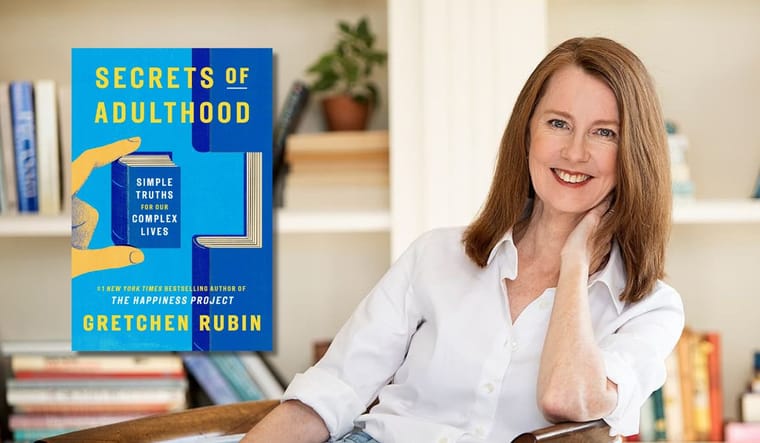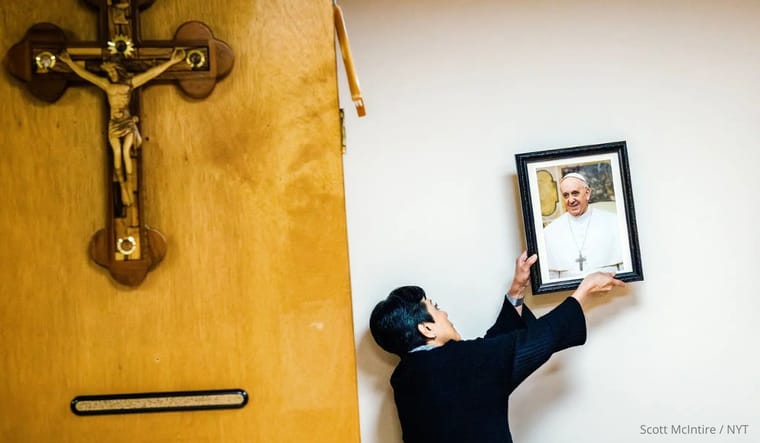Do You Know Your Lifetime Breast Cancer Risk? Olivia Munn, Clea Shearer, and Dr. Aliabadi Share the Test You Can Take Today to Get the Answer
In March, actress Olivia Munn shared that at 42, she had been diagnosed with an aggressive form of breast cancer. In part, Munn's reveal was shocking because of her age. But also, because she'd undergone her routine breast cancer screenings of mammograms and ultrasounds—which experts now recommend starting at age 40 instead of 50—and her tests had come back clean.
Stories like Munn's have caused women to wonder about their own risk and whether they are doing all that they can do for their health. (In the last two decades, rates of breast cancer in women under 50 have increased by more than 15 percent.)
In early October, Munn joined fellow breast cancer survivors Clea Shearer (of The Home Edit) and Dr. Thais Aliabadi (Munn's OB/GYN) on the "Be Your Own Best Advocate" panel at Hello Sunshine's Shine Away event in Los Angeles to talk about what every woman needs to know when it comes to screening for breast cancer. The Sunday Paper attended to listen to the three advocates, who shared their cancer journeys, encouragement, and a critical health tool for every woman to know.
Below are excerpts from their conversation, which was moderated by Mary Alice Haney. As you’ll read, their diagnosis stories are not only informative, but eye-opening. “If you know your name, your last name, and your date of birth, you better know your lifetime risk of breast cancer,” said Dr. Aliabadi. “It's a must, because it will save your life.”
A CONVERSATION WITH OLIVIA MUNN, CLEA SHEARER, AND DR. THAIS ALIABADI, MODERATED BY MARY ALICE HANEY
Clea Shearer: My path to diagnosis started with myself. I was in the shower and felt something unnatural. I had just turned 40 years old and knew a mammogram was in my future. I connected the dots. Then the receptor said, “I'm so sorry, but our books are full through April.” This was in February. “And the May books aren't open, so you're just gonna have to keep trying back.”
I'm calling saying, I think I have breast cancer, maybe fit me in? But no, that was not the case. I had to advocate for myself and go to my primary care doctor who raised a storm about it. I was able to get a mammogram, an ultrasound, and then an emergency triple biopsy because of what they found—all in the same day.
I was diagnosed with stage 2 breast cancer—specifically hormone positive, HER2-Negative, early stage, high risk breast cancer—and I underwent a double mastectomy right after, and of course, the treatment that followed.
Mary Alice Haney: Unfortunately, that's a story that we hear again and again and again. The medical community has failed us as women, and that is why this is really important to have these conversations.
Oliva Munn: I had my first mammogram a year prior and that was clear. I had, by the next year, at least two ultrasounds. I had my next mammogram—my yearly—and that came back clear. I had just taken a genetic test because I wanted to know about BRCA and I was clear for all 90-something genetic cancers that you could have. I went to see Dr. Aliabadi for my yearly pap smear, and I was like, Oh, by the way, we got the results back, and I'm clear right? She wanted to do this thing called the Tyrer-Cuzick Risk Assessment test. She said, “Your lifetime risk is 37.3 percent and anything higher than 20 percent is considered high risk. I want you to get an MRI.”
I love Dr. Aliabadi and I trust her. She is considered an aggressive doctor. We love that term because that means someone is advocating for us.
I get the MRI thinking I'm just going to pass another test, but he called that day and said, “We found something. You need to get an ultrasound.”
During the ultrasound the technician says he’s going to get the doctor, never a good thing to say. Then the doctor’s taking a long time and I finally said, “Is it cancer? What do you see?” She said, “Well, I see the one from the MRI, but now I'm finding two more.” They said they would schedule me for a biopsy, but they couldn't schedule me for another month. I called Dr. Aliabadi and said, “Please, do something. I feel in my bones this is not right.” A few days after the biopsy she calls me to her office. “Is it cancer?” “Yes, and you need to take this very seriously. It's stage one. You're really lucky, but it’s going to be aggressive, and the fact that it's in multiple areas means that I guarantee you it's on the other side.”
She gave me my marching orders. I was now battling for my life. I have a small baby at home—there was no other option but to fight. I didn't want to be there. I didn't want this to be happening to me, but that doesn't matter, it's happening so I just stayed really focused.
If I hadn’t been aggressive and got the double mastectomy, I still would have had cancer. If I just did a lumpectomy, I still would have had cancer that I didn't know about.
Mary Alice Haney: Dr. Aliabadi and I talk a lot about that. Listen, everybody should get a mammogram—we're not saying that mammograms aren't the first line of defense, but with Olivia telling her story publicly, this lifetime risk of breast cancer assessment test is something everybody can do. Dr. Aliabadi always says, I want a woman to know her social security number and I want her to know her lifetime risk of breast cancer.
Dr. Thais Aliabadi: My story was a little bit different. I was 48. I came from a family with no history of cancer. I've never smoked. I've never done drugs. I never drank alcohol. I was a seven-year vegetarian. I was not eating any animal products. I'd never been overweight. I'd never been on hormones. I was the poster child for someone who was not supposed to get breast cancer.
I went for one of my mammograms. They did a quick biopsy and said there's some atypical lobular cells. These are pre-cancer cells, but they're not cancer. I went to my doctor, a breast surgeon, and she said, “You're fine, go and come back in six months.” I went back to my office and just so happened that day there was a rep visiting the office. He was sitting across from me, and we're having lunch together. I was telling him about my biopsy results and he looked at me and asked if I had ever calculated my own lifetime risk of breast cancer. I had done it for every patient, but it never crossed my mind as a gynecologist to do it for myself.
While I was sitting there eating lunch, I started punching in my height, weight, first day of my last period, density of my breast, my family history, whether I’ve had atypical hyperplasia. As soon as I hit calculate, 37.5% popped up on the screen. I almost fell off my chair. This can't be true. This is wrong. It's not true.
I called my doctor like You told me to go and come back in six months—37.5%? Back then I had three little kids at home. That's all you think as a mom. If you told me I had a 37.5% chance of boarding a plane that would crash, I would never board that plane. That's a big, big number. I told them to take my breasts off. I already have implants. I don't care. I've already had my children.
I begged my doctor who told me that at 48 a mastectomy is devastating—an amputation she called it—I didn't see it that way. She said, “Go and come back when you're 50.” So I started going from doctor to doctor, and everyone called me crazy. They called me anxious, crazy, paranoid, aggressive.
That went on until I saw Dr. Orringer, a reconstructive surgeon who said, “If you were my wife, I would have done this a year ago.” At this point, I had been asking for a year. Thankfully he found me a surgeon.
A week after, Dr. Orringer called with the pathology report confirming it was cancer. I completely shattered into a million pieces. The first emotion I felt was anger, because for a year people kept calling me crazy and paranoid and anxious. I'm well known at my institution. People know me. They still called me crazy.
I read somewhere that when something traumatic happens to you in life, instead of saying, “Why me, why me!” Go down that path and you'll see why you were placed on that path. I cried for two days when I was first diagnosed, but after finishing this book I sat on my bed and I told myself, This happened to me so I can save so many women's lives.
If you know your name, your last name, and your date of birth, you better know your lifetime risk of breast cancer. It's a must, because it will save your life.
It's been my mission, it became Olivia’s mission. Her voice really started a revolution. I always tell my children, if you told me I can go back five years and not have cancer and live that old life, or I can go through all this trauma, get diagnosed with breast cancer, but be here today, I would 1,000% pick this because I'm here to tell you how to save your life.
Olivia Munn: Same.
Clea Shearer: Same.
To assess your own lifetime risk of breast cancer, you can complete the free Tyrer-Cuzick Risk Assessment test. This test and your results are intended to be used as a tool, please ask your doctor about your risk and screenings.
Please note that we may receive affiliate commissions from the sales of linked products.



